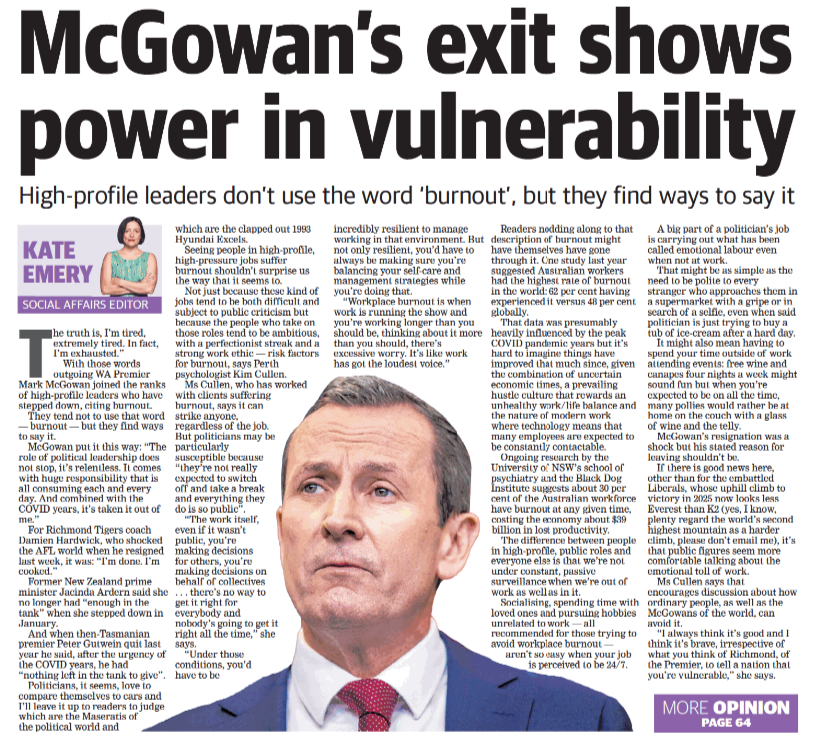Kim spoke to The West Australian about burn out as WA’s Premier, Mark McGowan, announces his resignation.

Kim spoke to The West Australian about burn out as WA’s Premier, Mark McGowan, announces his resignation.

Kim spoke to Pat Panetta about setting New Years resolutions and how to avoid falling off. Picking little things to support your overall goal will help you succeed. It takes time to change habits, particularly long term embedded behaviours. Reward the baby steps, but make sure they don’t undo your progress!
Psychologist Kim Cullen chats to Monika Cos about why 80% of us abandon our New Years resolutions by February. Relying on our good intentions alone isn’t enough.
Setting realistic and clear resolutions will increase the likelihood that you’ll stick to them. You’ll see a lot more success making small daily or weekly changes rather than making one big change.
Kim’s biggest tip…replace the behaviour! Instead of focussing on what you won’t do this year, replace it with something you will do.
The new year is almost here, and it's time to start thinking about those resolutions – but how do you make them stick? #9News pic.twitter.com/yW83HI0fBz
— 9News Perth (@9NewsPerth) December 29, 2022
Kim spoke to Allan and Carly on Hit about family dynamics at Christmas, and how to ease what can be a very painful time for many people.
Bill Woods chats to Kim about why we tend to let loose a bit more at work Christmas parties… and how to deal with the embarrassment the morning after!
It’s often said that you can see physical illness but you can’t see mental illness. But while you can’t see the cause of mental illness you can see the signs that someone is suffering.
Kim spoke to Bill Woods on 2GB during Mental Health Month (October). “Look for social withdrawal, poor concentration, prolonged sadness, changes in mood, behaviour, and mannerisms. Ask yourself, how does this person behave when they’re happy, compared to how they’re behaving now? Start the conversation. If you’re not sure how, the best advice is to be direct. Mental health conversations don’t need to be subtle. And don’t worry if you don’t have a solution, it’s more about trying to understand what they’re experiencing, listening without judgement, and making sure they know they’re not alone.”